Find Help
More Items From Ergsy search
-
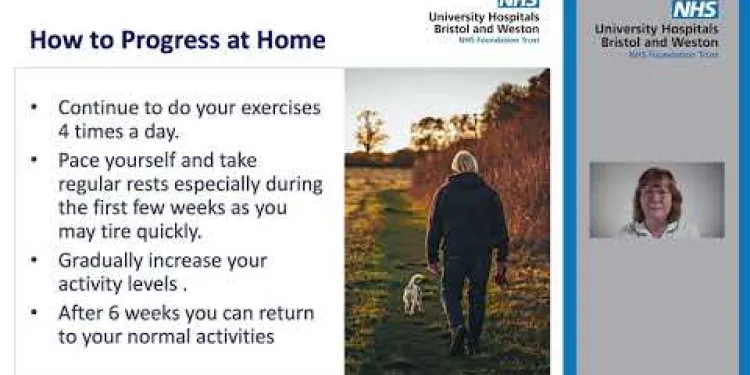
Enhanced Recovery - Hip
Relevance: 100%
-
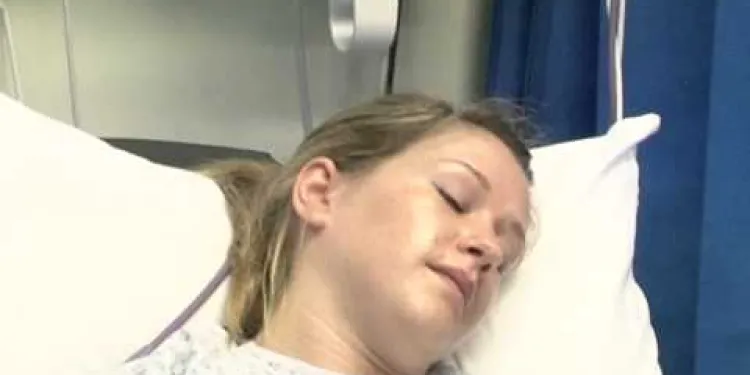
Enhanced Recovery YouTube
Relevance: 64%
-

What is the recovery time for a hip replacement?
Relevance: 61%
-
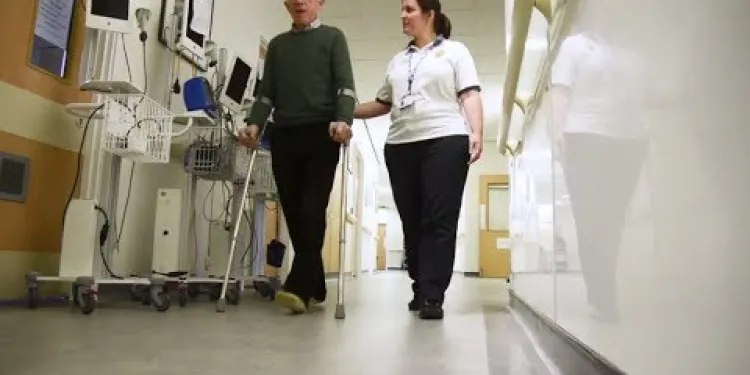
Having a hip replacement - Part Two: Recovery
Relevance: 54%
-
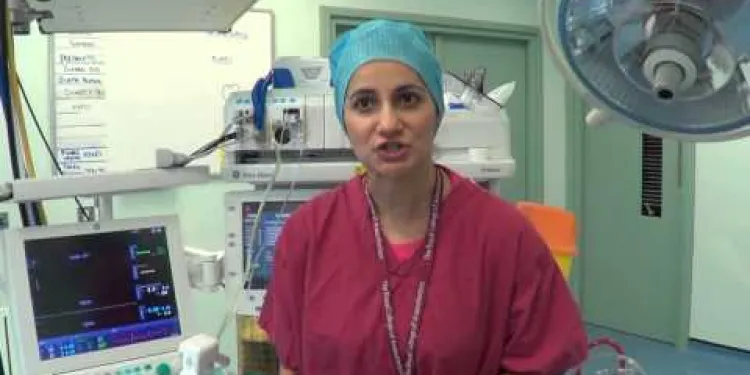
Enhanced Recovery After Surgery in Forth Valley
Relevance: 50%
-

What is a hip replacement?
Relevance: 50%
-
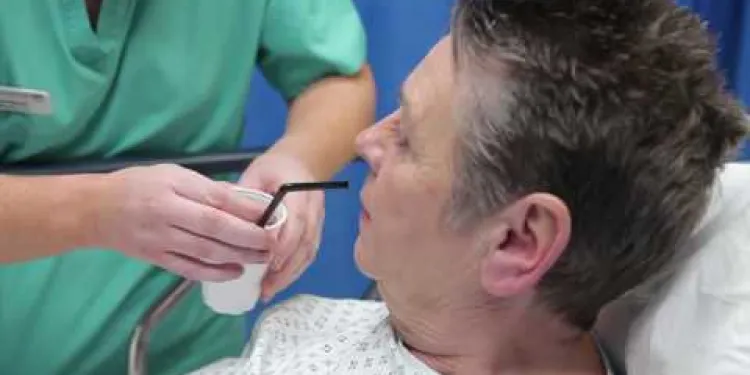
Hip replacement
Relevance: 49%
-
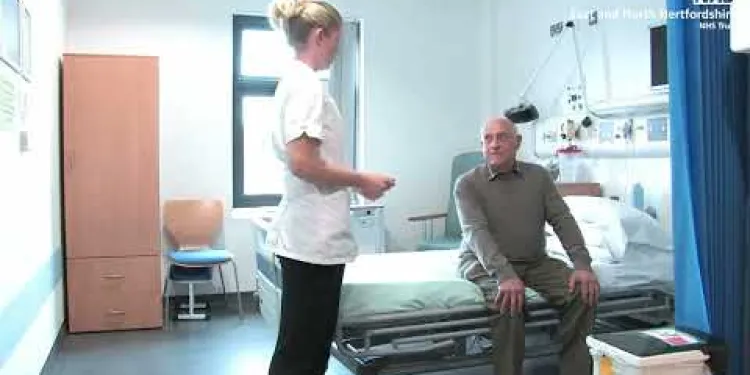
A journey to hip surgery
Relevance: 49%
-

Total Hip Replacement
Relevance: 49%
-

Do I need a Hip Replacement?
Relevance: 47%
-
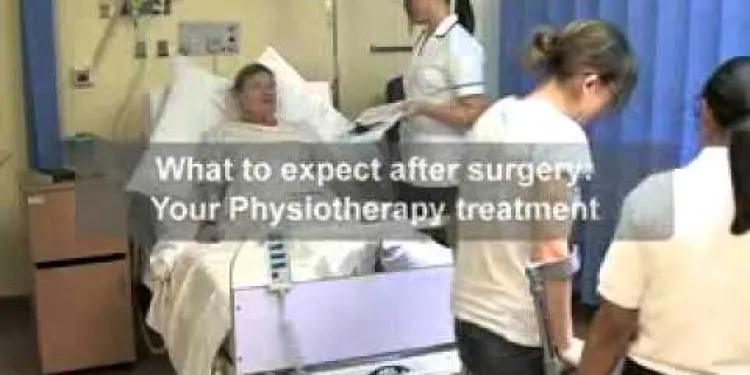
Total hip replacement
Relevance: 47%
-
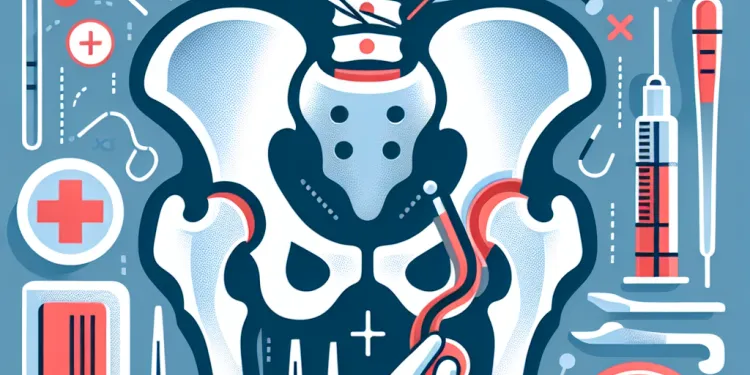
What is minimally invasive hip replacement surgery?
Relevance: 45%
-

Can both hips be replaced at the same time?
Relevance: 44%
-

Osteoarthritis of the Hip
Relevance: 44%
-
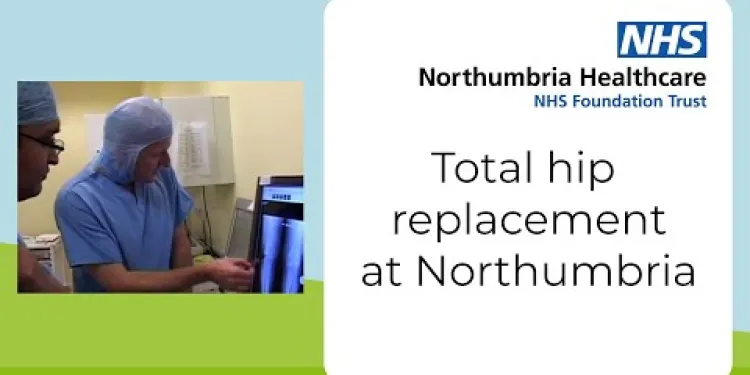
Total hip replacement at Northumbria Healthcare
Relevance: 44%
-

How long does a hip replacement surgery take?
Relevance: 43%
-

Will I need physical therapy after a hip replacement?
Relevance: 43%
-
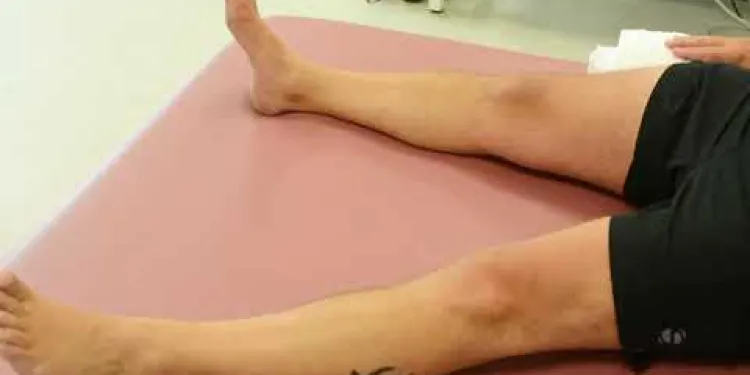
Joint School - Hip Exercises
Relevance: 42%
-
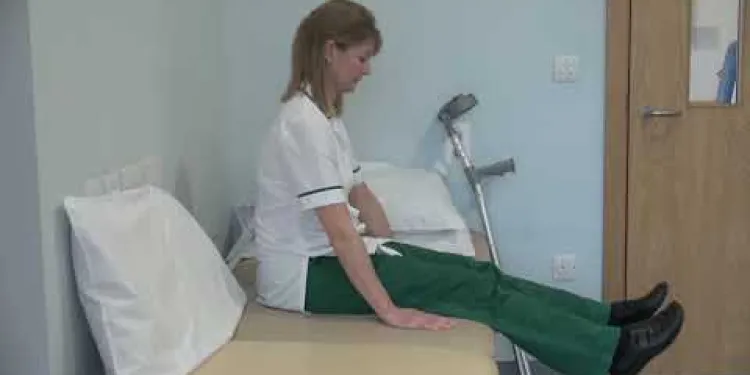
Hip replacement - getting into bed
Relevance: 41%
-

How do I prepare for hip replacement surgery?
Relevance: 41%
-

Osteoarthritis of the Hip
Relevance: 41%
-
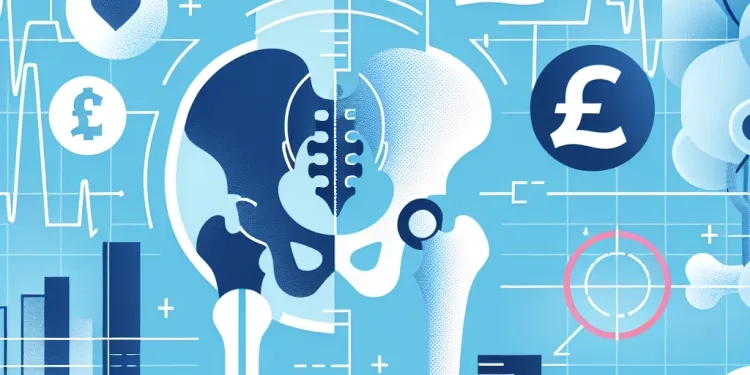
What type of anaesthesia is used during hip replacement surgery?
Relevance: 41%
-
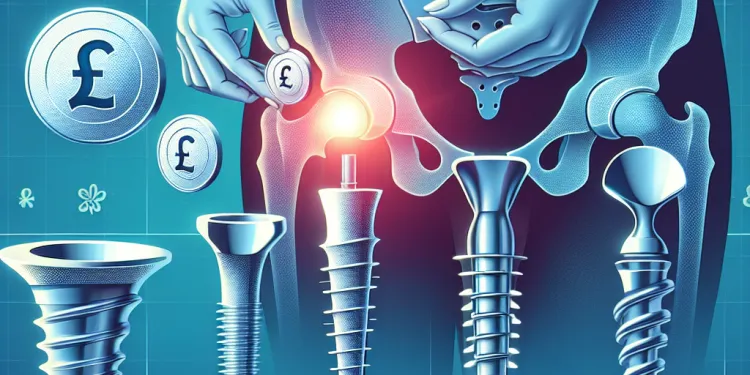
Are there different types of hip implants?
Relevance: 41%
-

How much does hip replacement surgery cost in the UK?
Relevance: 40%
-
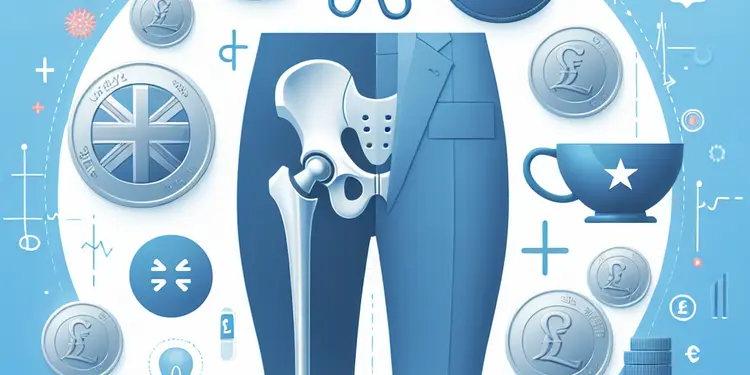
How long does it take to recover from a hip replacement operation?
Relevance: 39%
-
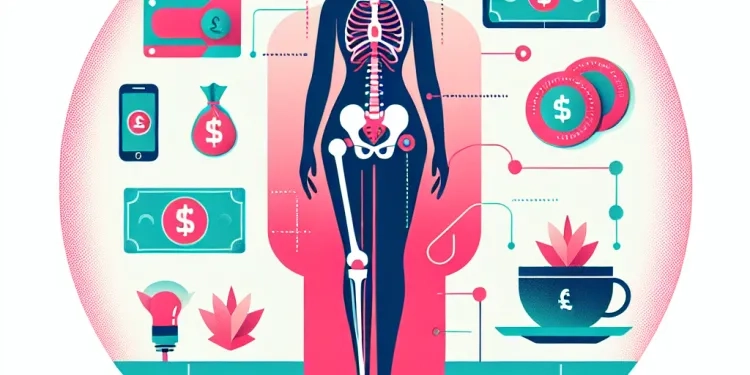
What are the risks associated with hip replacement surgery?
Relevance: 38%
-
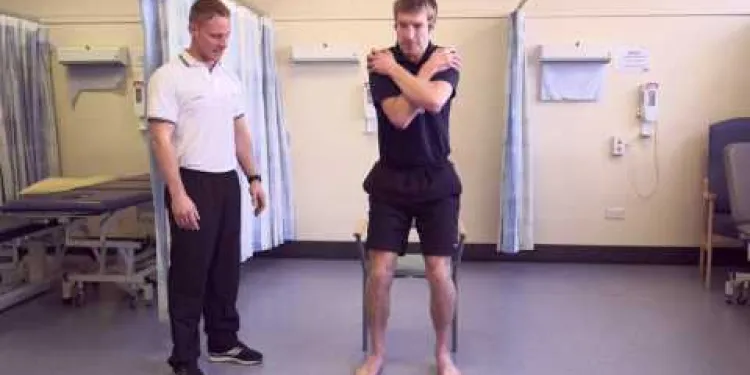
Exercises to help your lateral hip pain
Relevance: 37%
-
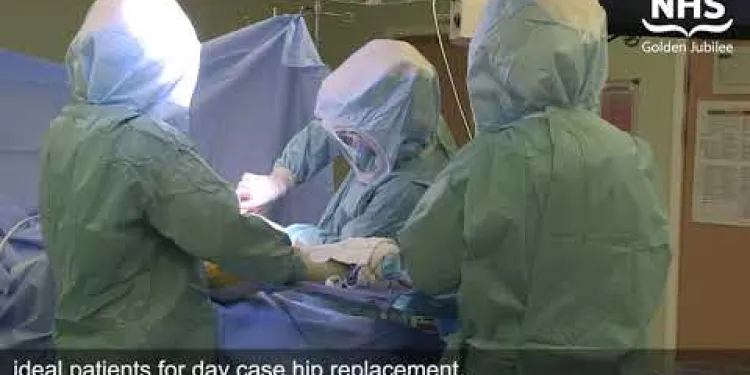
Same day discharge for NHS Golden Jubilee’s hip replacement patients
Relevance: 36%
-
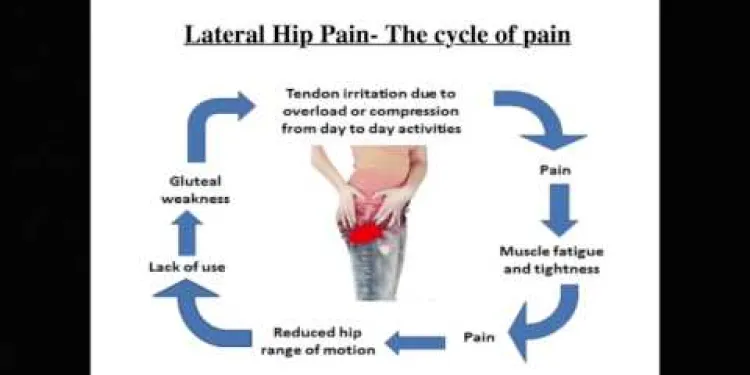
Advice - How to manage your lateral hip pain
Relevance: 36%
-
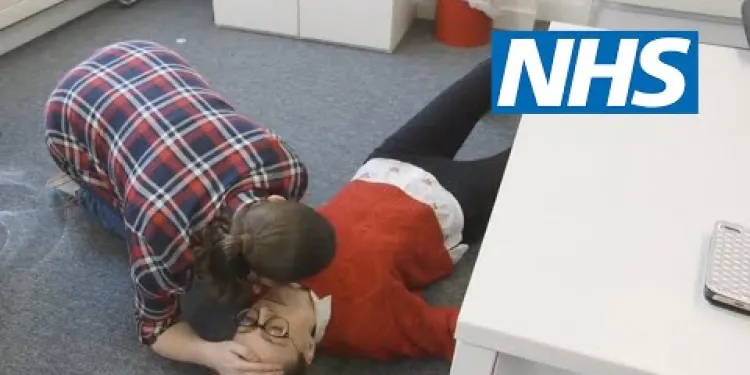
How to put someone into the recovery position | NHS
Relevance: 34%
-

How do mixed exercises enhance flexibility?
Relevance: 33%
-
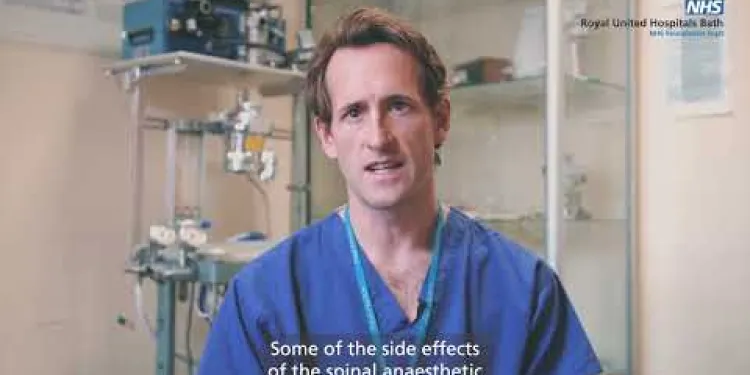
Your anaesthetic choices for your planned hip or knee replacement surgery at the RUH.
Relevance: 32%
-

Why is it important to update my account recovery information?
Relevance: 30%
-

What is the recovery time for a facelift?
Relevance: 30%
-
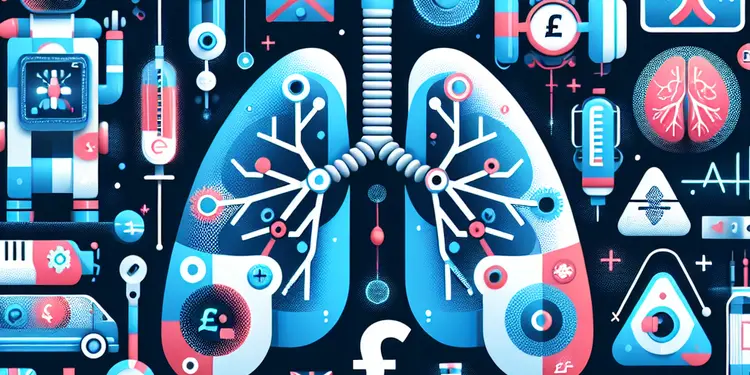
How do AI-assisted robotic systems enhance lung cancer surgeries?
Relevance: 29%
-

What lifestyle changes can aid in prostate cancer recovery?
Relevance: 28%
-
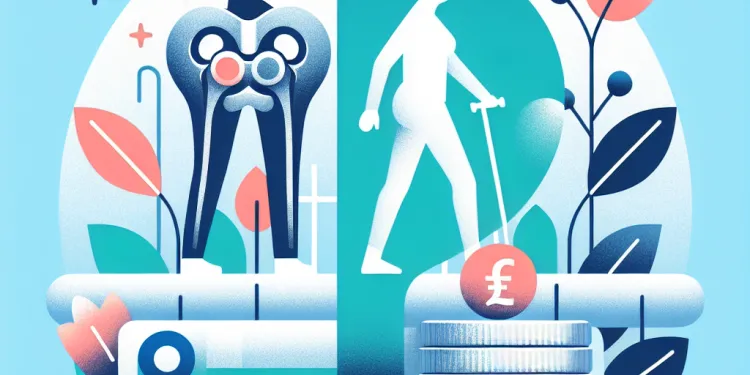
Will I be able to return to normal activities after hip replacement?
Relevance: 27%
-
Can air physiotherapy help with COVID-19 recovery?
Relevance: 27%
-

What is the recovery time after Carpal Tunnel Surgery?
Relevance: 27%
-
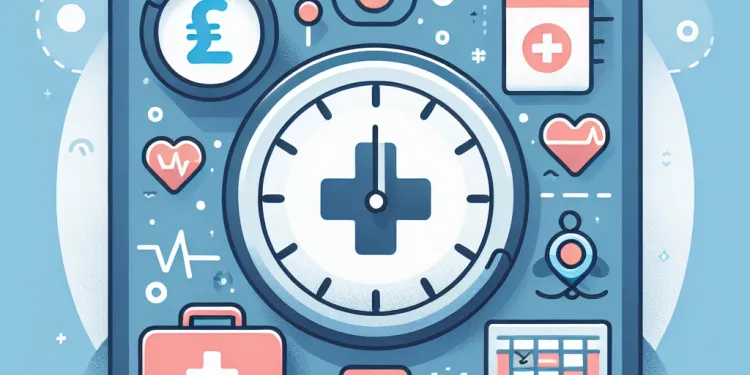
How long is the recovery time after an appendectomy?
Relevance: 26%
Enhanced Recovery - Hip Surgery
Introduction to Enhanced Recovery
Enhanced Recovery, also known as Enhanced Recovery After Surgery (ERAS), is a modern approach to help patients recover more quickly after surgery. Initially developed for colorectal surgery, ERAS protocols have been adapted for other types of surgeries, including hip surgeries. The enhanced recovery program focuses on optimizing preoperative, intraoperative, and postoperative care to improve patient outcomes and accelerate recovery.Benefits of Enhanced Recovery for Hip Surgery
Enhanced recovery protocols for hip surgery offer numerous benefits, including reduced hospital stays, fewer complications, and quicker return to normal activities. By implementing a comprehensive plan that includes pain management, fluid therapy, and nutritional support, patients experience a more seamless and efficient recovery process. Additionally, ERAS helps in reducing the risk of postoperative complications such as blood clots, infections, and prolonged immobility, which can be particularly concerning for hip surgery patients.Preoperative Preparation
Preoperative preparation is crucial in the ERAS pathway for hip surgery. Patients are provided with detailed information about their surgery and recovery process. Prehabilitation exercises, dietary advice, and psychological support are often recommended to optimize the patient's physical and mental state before surgery. Patients are also encouraged to stop smoking and reduce alcohol consumption, which can significantly impact recovery timelines.Intraoperative Care
Intraoperative care in ERAS for hip surgery focuses on minimizing surgical stress and promoting stability. Techniques such as minimally invasive surgery, regional anesthesia, and careful fluid management are utilized to enhance patient outcomes. Maintaining normothermia (normal body temperature) during surgery is also essential, as it helps reduce the risk of infection and promotes faster recovery.Postoperative Management
Postoperative management is a critical component of the ERAS pathway. Pain control is achieved through a combination of medications and non-pharmacologic methods. Early mobilization and physical therapy are encouraged to prevent complications such as deep vein thrombosis (DVT) and to promote faster regain of function. Nutritional support continues to be a focus, ensuring patients receive the necessary nutrients to aid in their recovery. Additionally, patient education continues postoperatively, helping them understand how to manage their recovery at home.Conclusion
In the United Kingdom, the adoption of Enhanced Recovery After Surgery (ERAS) protocols for hip surgeries has led to significant improvements in patient outcomes. By encompassing a holistic approach that begins before surgery and continues through recovery, ERAS protocols enable patients to return to their daily lives more quickly and safely. As healthcare systems continue to embrace these practices, the benefits for both patients and healthcare providers will continue to grow, leading to a more efficient and effective surgical recovery process.Enhanced Recovery - Hip Surgery
Introduction to Enhanced Recovery
Enhanced Recovery, also known as Enhanced Recovery After Surgery (ERAS), is a new way to help people get better faster after surgery. It started with bowel surgery but now helps with other surgeries like hip surgery. ERAS makes sure care before, during, and after the surgery is the best it can be to help people get better quicker.Benefits of Enhanced Recovery for Hip Surgery
Enhanced recovery plans for hip surgery have lots of benefits. They help people leave the hospital sooner, have fewer problems, and get back to normal life faster. These plans include ways to manage pain, give the right fluids, and help with food. This makes recovery smoother. They also help lower the chance of problems like blood clots or infections, which are important to avoid for hip surgery patients.Preoperative Preparation
Getting ready before the surgery is very important in the ERAS plan for hip surgery. Patients get lots of information about what will happen during and after surgery. Exercises, good eating, and mental support are suggested to help patients be strong and feel good before surgery. It is also important that patients try to stop smoking and drink less alcohol to help them recover faster.Intraoperative Care
During the surgery, ERAS makes sure stress is low and everything is stable. Techniques like less invasive surgery, special types of anesthesia, and careful fluid management are used. Keeping the body warm during surgery is key because it helps prevent infections and supports faster recovery.Postoperative Management
Taking care after the surgery is a big part of the ERAS plan. Pain is managed with medicine and other ways. Patients are encouraged to move early and do physical therapy to stop problems like blood clots and to help them get their strength back. Making sure they have good nutrition during recovery is also important. Patients keep learning about their recovery so they can manage it well at home.Conclusion
In the UK, using ERAS for hip surgeries has made recovery much better for patients. This approach covers everything from before surgery to after and helps patients go back to their normal lives sooner and more safely. As more hospitals use these plans, everyone benefits by having a better and faster recovery after surgery.Frequently Asked Questions
What is Enhanced Recovery for hip surgery?
Enhanced Recovery is a modern approach to hip surgery aiming to reduce recovery time and improve outcomes for patients through a combination of preoperative education, optimised anaesthesia, pain management, and early mobilisation.
How long does it take to recover from hip surgery with Enhanced Recovery?
Recovery times can vary, but patients following an Enhanced Recovery pathway may expect to leave the hospital within 3-5 days post-surgery, with a faster return to normal activities compared to traditional recovery methods.
What are the main components of the Enhanced Recovery programme?
The key components include preoperative education, optimised anaesthetic techniques, minimally invasive surgery, effective pain management, and early postoperative mobilisation.
Will I experience less pain with Enhanced Recovery?
Enhanced Recovery protocols utilise advanced pain management techniques, which typically result in less pain and discomfort during the recovery period.
Do I need to prepare differently for surgery with Enhanced Recovery?
Yes, the programme often includes prehabilitation exercises, nutritional optimisation, and preoperative education to better prepare you for surgery and recovery.
Can all patients undergoing hip surgery benefit from Enhanced Recovery?
While the majority of patients can benefit, individual suitability will be assessed by your surgical and medical team based on your overall health and specific circumstances.
How soon after hip surgery will I be able to walk?
Most patients are encouraged to start walking on the day of surgery or the following day as part of the Enhanced Recovery programme.
What role does physiotherapy play in Enhanced Recovery?
Physiotherapy is crucial in the Enhanced Recovery programme, helping to restore movement, strength, and function as quickly and safely as possible.
Will I need less medication with Enhanced Recovery?
Enhanced Recovery programmes aim to minimise the use of medications through multimodal analgesia and other strategies, potentially reducing the need for opioids and other drugs.
What happens during preoperative education for Enhanced Recovery?
Preoperative education sessions explain the surgery, recovery process, and what patients can do to aid their recovery. This helps reduce anxiety and improve compliance with postoperative instructions.
Are there dietary recommendations associated with Enhanced Recovery?
Patients are often advised on optimal nutrition to improve healing and recovery, which may include nutritional supplements and a balanced diet rich in proteins and vitamins.
Will I need to stay in hospital longer with Enhanced Recovery?
Actually, the aim of Enhanced Recovery is to reduce hospital stays. Many patients are discharged within a few days, provided there are no complications.
What kind of anaesthesia is used in Enhanced Recovery?
Enhanced Recovery often uses regional anaesthesia, such as spinal or epidural blocks, combined with light sedation or general anaesthesia to minimise side effects and improve recovery.
How does Enhanced Recovery affect my discharge plan?
An Enhanced Recovery pathway typically includes clear discharge criteria and comprehensive post-discharge support to ensure a smooth transition back to your home environment.
Where can I get more information about Enhanced Recovery for hip surgery?
You can get more information from your healthcare provider, the hospital where you will have your surgery, or relevant NHS resources online.
What is Enhanced Recovery for hip surgery?
After you have hip surgery, doctors want you to feel better quickly. They may use a special plan called Enhanced Recovery. This plan helps you heal faster. It lets you go home sooner. It also helps you move and do things you like more quickly.
Some things that are part of Enhanced Recovery are:
- Exercising a little bit each day.
- Eating healthy foods.
- Having friends or family help you.
If you are learning about Enhanced Recovery, you can use helpful tools like videos or pictures. Ask your doctor any questions you have. They are there to help you understand!
Enhanced Recovery is a new way to help people get better after hip surgery. It helps people heal faster and feel better. This plan includes learning about the surgery before it happens, making the sleep medicine (anaesthesia) work better, managing pain well, and getting people moving soon after surgery.
How long will it take to feel better after hip surgery with Enhanced Recovery?
After hip surgery, many people can feel better quickly with a plan called Enhanced Recovery.
Here are some tips to help you heal faster:
- Do exercises that the doctor or nurse gives you.
- Eat healthy foods like fruits and vegetables.
- Get plenty of rest and sleep.
- Ask for help if you need it.
- Use tools, like crutches or a walker, if your doctor tells you to.
Most people start to feel better in a few weeks, but some people may take longer.
Always talk to your doctor or nurse for the best advice.
People get better at different speeds. If someone follows a special plan to get better, they might leave the hospital 3 to 5 days after surgery. They can start doing their normal activities sooner than usual.
Here are some things that can help you get better faster:
- Listen to the doctor's advice.
- Eat healthy food and drink lots of water.
- Rest and sleep well.
- Do gentle exercises if the doctor says it is okay.
What are the important parts of the Enhanced Recovery programme?
The Enhanced Recovery programme helps people get better after surgery. Here are the important parts:
- Planning before surgery: Doctors and nurses talk with you about what will happen. You can ask questions.
- Eating and Drinking: You get advice on what to eat and drink to be strong and healthy.
- Exercise: Simple exercises help you stay fit and ready for surgery.
- Medicine: You get medicine to help you feel better and heal faster.
- Support after surgery: Doctors, nurses, and family help you rest and get strong again.
To help understand better, you can:
- Ask someone to read it with you.
- Use pictures or videos to see what happens.
- Write down questions and talk to your doctor or nurse.
The important parts are:
- Learning what will happen before surgery
- Using the best ways to make you sleep during surgery
- Doing the surgery in a way that is gentle on your body
- Helping you with pain after surgery
- Getting you up and moving soon after surgery
You can try using pictures or videos to understand more. Ask someone you trust to help explain things to you.
Will I have less pain with Enhanced Recovery?
Enhanced Recovery is a plan to help you feel better faster after surgery. It might help you have less pain.
Here are some things that can help:
- Talk to your doctor or nurse. They can explain things and answer your questions.
- Use apps or tools to help you understand what is happening. Pictures and videos can be helpful.
- Ask for help from friends or family if you need it.
Enhanced Recovery helps people feel less pain after surgery. It uses new ways to manage pain so you don't feel as bad while getting better.
Here are some ideas to help you understand:
- Ask the doctor to explain any big words.
- Use a voice reader to listen to the text.
- Write down questions to ask if you don't understand.
How should I get ready for surgery with Enhanced Recovery?
Here is how you can get ready for your surgery:
- Ask your doctor what you need to do. They can help you get ready.
- Eat healthy food and drink lots of water. This can help your body be strong.
- Try to move your body and do some exercises. This can help you heal faster.
- If you are scared or worried, talk to someone, like a family member or nurse.
Remember, it's okay to ask for help! You can use tools like pictures or videos if they help you understand better.
Yes, the program often includes exercises to help you get strong before surgery. It also has tips for eating healthy foods. The program will teach you what to expect before and after your surgery to help you get better faster.
Can everyone having hip surgery get better faster?
Some people have an operation on their hip. There are ways to help them recover quicker. We call this "Enhanced Recovery." It helps people get better and feel well sooner.
Doctors use special steps to help people after surgery. These steps can help almost everyone. But, each person is different, and some might need extra help.
What can help?
- Eat healthy food.
- Take short walks with help.
- Listen to your doctors and nurses.
- Ask questions if you are unsure.
- Have a friend or family member with you.
Most people can get help from this. But doctors will check if it's right for you. They will look at how healthy you are and your personal needs.
When can I walk after hip surgery?
Most people can start walking on the same day as their surgery or the next day. Walking helps them get better quickly.
How does physiotherapy help people get better faster?
Physiotherapy is very important. It helps people get better quicker. It helps them move, get strong, and do things safely.
Will I need less medicine with Enhanced Recovery?
With Enhanced Recovery, you might need less medicine. This means you could feel better faster. Ask your doctor about it to learn more.
Here are some ways to help:
- Talk to your doctor: Ask them questions if you don't understand.
- Use pictures: Sometimes pictures can help show what is happening.
- Get help from a friend or family: They can help you understand and remember things.
Enhanced Recovery plans help you get better faster after surgery. They use different ways to help you feel less pain, so you might not need as much medicine. This can mean taking fewer strong painkillers, like opioids, and other drugs.
What do you learn before an Enhanced Recovery surgery?
Before surgery, you have a special meeting. This meeting is to help you get ready for your surgery. Here is what you learn:
- What will happen: You will learn what happens during surgery and how the day will go.
- How to get ready: You will learn what to do before the surgery, like not eating or drinking.
- Ask questions: You can ask anything you do not understand. This is to help you feel less worried.
- Meet your team: You will meet the doctors and nurses who will help you.
Helpful tools like simple pictures can make it easier to understand. You can also use videos to help you feel calm about surgery.
Before surgery, there are special meetings to talk about the operation. They explain what the surgery is, how you will get better afterward, and what you can do to help yourself recover. These meetings help you feel less scared and help you do what the doctors and nurses tell you after the surgery.
If reading is hard, try using a ruler or your finger to follow the words. You can also try reading with someone else or listening to an audio version if available.
What foods should I eat for better recovery?
Eating the right foods can help you feel better after being sick or having surgery. Here are some tips:
- Try to eat small meals often. This can help you get energy.
- Include fruits and vegetables in your meals. They have vitamins that help you heal.
- Drink plenty of water to stay hydrated.
- Eat foods with protein, like chicken or beans. Protein helps your body repair itself.
If you need more help, you can:
- Ask a doctor or nurse what foods are best for you.
- Use picture charts to remind you what to eat.
- Try apps or websites for easy recipes.
Doctors often tell people what to eat to help them get better. Eating the right food can help you heal faster. This can mean taking vitamins and eating food with protein. It's good to eat a mix of different foods.
If you find reading hard, try using tools like audiobooks or apps that read text out loud. These can make understanding easier.
Will I stay in hospital longer with Enhanced Recovery?
Enhanced Recovery is a way to help you get better faster after an operation. It can help you leave the hospital sooner.
Doctors and nurses will take special care of you. They will help you move around and get back to normal quickly.
If you have questions, talk to your doctor or nurse. They can explain and help you understand.
The goal of Enhanced Recovery is to help people leave the hospital sooner. Most people go home a few days after surgery if there are no problems.
What type of medicine helps you sleep during Enhanced Recovery?
During an operation, doctors can give you medicine so you don't feel anything. This is called anaesthesia. In Enhanced Recovery, doctors use special types of this medicine. They help you get better faster after the operation. If you have questions, ask your doctor or nurse. They can help you understand. Using pictures or videos can also help explain things better.Enhanced Recovery helps people get better faster after surgery. It often uses special medicine called regional anaesthesia. This can be a spinal or epidural block. It is used with light sleep medicine or general sleep medicine to help people feel less sick and get better quicker.
How does Enhanced Recovery affect my discharge plan?
"Enhanced Recovery" is a way to help you get better after you have been in the hospital. It can change how you leave the hospital, which is called your "discharge plan."
Here is how Enhanced Recovery can help with your discharge plan:
- You might leave the hospital sooner.
- You will know what to do to feel better at home.
- The doctors and nurses will talk to you and your family about how to help you.
If you have questions, ask your doctor or nurse. They are there to help you understand your plan.
It can be helpful to bring a friend or a family member to talk to the doctors with you. You can also write down your questions to make sure you remember them.
An Enhanced Recovery plan helps you get better after being in the hospital. It tells you when you are ready to go home. There are also people and tools to help you feel good and safe when you get home.
How can I learn more about getting better after hip surgery?
You can ask your doctor, the hospital where you will have your surgery, or look online at NHS resources to find out more information.
Useful Links
This website offers general information and is not a substitute for professional advice.
Always seek guidance from qualified professionals.
If you have any medical concerns or need urgent help, contact a healthcare professional or emergency services immediately.
Some of this content was generated with AI assistance. We’ve done our best to keep it accurate, helpful, and human-friendly.
- Ergsy carfully checks the information in the videos we provide here.
- Videos shown by Youtube after a video has completed, have NOT been reviewed by ERGSY.
- To view, click the arrow in centre of video.
- Most of the videos you find here will have subtitles and/or closed captions available.
- You may need to turn these on, and choose your preferred language.
- Go to the video you'd like to watch.
- If closed captions (CC) are available, settings will be visible on the bottom right of the video player.
- To turn on Captions, click settings .
- To turn off Captions, click settings again.
More Items From Ergsy search
-

Enhanced Recovery - Hip
Relevance: 100%
-

Enhanced Recovery YouTube
Relevance: 64%
-

What is the recovery time for a hip replacement?
Relevance: 61%
-

Having a hip replacement - Part Two: Recovery
Relevance: 54%
-

Enhanced Recovery After Surgery in Forth Valley
Relevance: 50%
-

What is a hip replacement?
Relevance: 50%
-

Hip replacement
Relevance: 49%
-

A journey to hip surgery
Relevance: 49%
-

Total Hip Replacement
Relevance: 49%
-

Do I need a Hip Replacement?
Relevance: 47%
-

Total hip replacement
Relevance: 47%
-

What is minimally invasive hip replacement surgery?
Relevance: 45%
-

Can both hips be replaced at the same time?
Relevance: 44%
-

Osteoarthritis of the Hip
Relevance: 44%
-

Total hip replacement at Northumbria Healthcare
Relevance: 44%
-

How long does a hip replacement surgery take?
Relevance: 43%
-

Will I need physical therapy after a hip replacement?
Relevance: 43%
-

Joint School - Hip Exercises
Relevance: 42%
-

Hip replacement - getting into bed
Relevance: 41%
-

How do I prepare for hip replacement surgery?
Relevance: 41%
-

Osteoarthritis of the Hip
Relevance: 41%
-

What type of anaesthesia is used during hip replacement surgery?
Relevance: 41%
-

Are there different types of hip implants?
Relevance: 41%
-

How much does hip replacement surgery cost in the UK?
Relevance: 40%
-

How long does it take to recover from a hip replacement operation?
Relevance: 39%
-

What are the risks associated with hip replacement surgery?
Relevance: 38%
-

Exercises to help your lateral hip pain
Relevance: 37%
-

Same day discharge for NHS Golden Jubilee’s hip replacement patients
Relevance: 36%
-

Advice - How to manage your lateral hip pain
Relevance: 36%
-

How to put someone into the recovery position | NHS
Relevance: 34%
-

How do mixed exercises enhance flexibility?
Relevance: 33%
-

Your anaesthetic choices for your planned hip or knee replacement surgery at the RUH.
Relevance: 32%
-

Why is it important to update my account recovery information?
Relevance: 30%
-

What is the recovery time for a facelift?
Relevance: 30%
-

How do AI-assisted robotic systems enhance lung cancer surgeries?
Relevance: 29%
-

What lifestyle changes can aid in prostate cancer recovery?
Relevance: 28%
-

Will I be able to return to normal activities after hip replacement?
Relevance: 27%
-
Can air physiotherapy help with COVID-19 recovery?
Relevance: 27%
-

What is the recovery time after Carpal Tunnel Surgery?
Relevance: 27%
-

How long is the recovery time after an appendectomy?
Relevance: 26%


